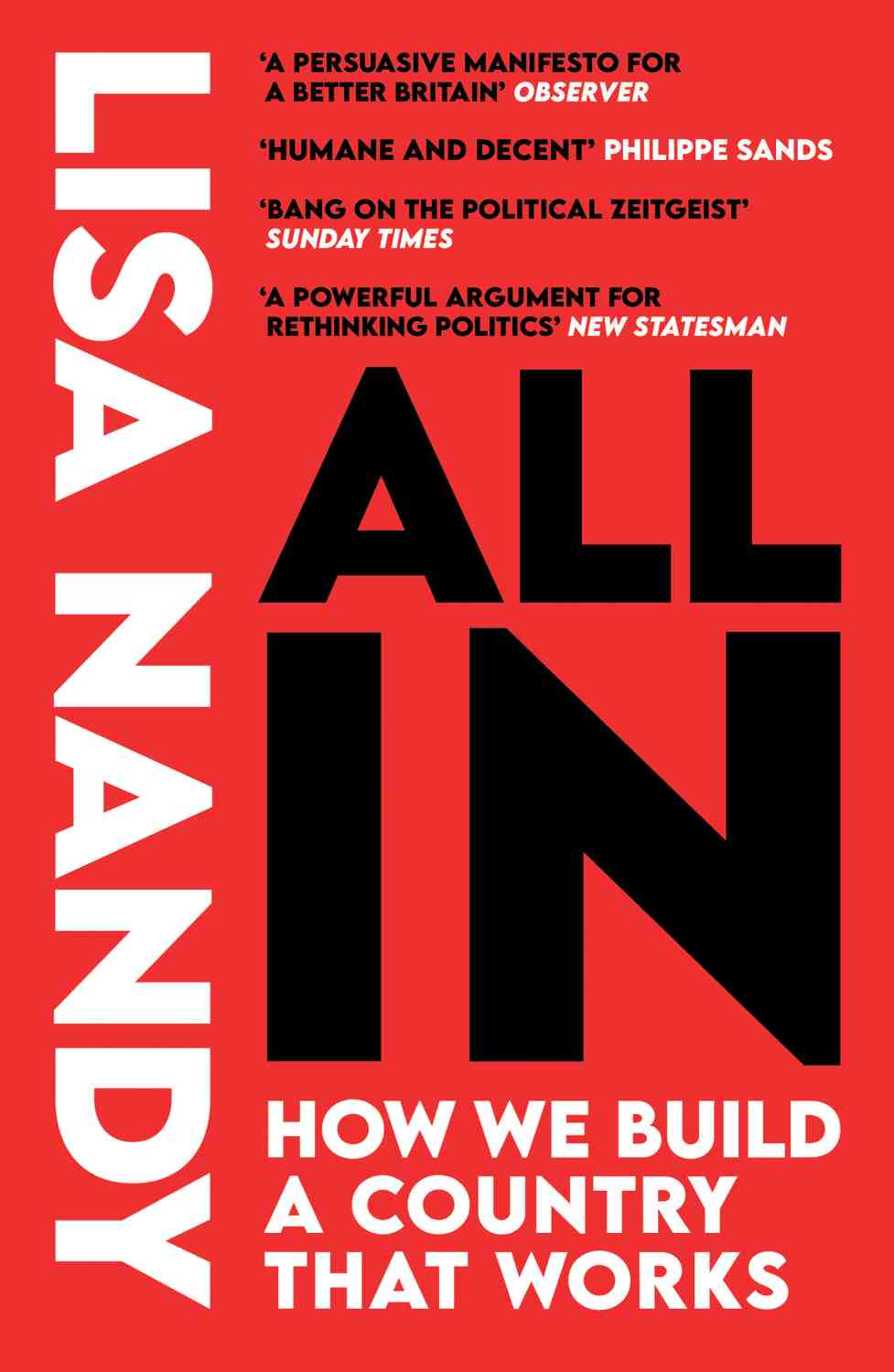James Meadway reviews Lisa Nandy's 'All In'
Lisa Nandy, Wigan, 2020 | Image by: PA Images / Alamy Stock Photo
4 min read
With a sharp eye for illustration, Lisa Nandy offers one of Labour’s more radical routes out of neoliberalism in her accessible book, just out in paperback
Lisa Nandy has written a short and accessible book that stands as a guide not only to her thinking but to how the centre-left of the Labour Party is attempting to tackle the failures of neoliberalism. She has a sharp eye for illustration, drawn from her experience as an MP. Growing up in Wigan, I also remember Upper Morris Street Working Men’s Club, its patrons lost after Wigan’s rugby league ground at nearby Central Park was demolished to make way for a Tesco, and the club itself was then demolished to make way for a drive-through McDonald’s. It’s a striking example of the losses the last few decades have inflicted on towns like the one she represents.
Nandy’s attempt to tie the local and the particular to the great sweep of historical change in her central chapters is to be welcomed. Until recently, Labour’s front bench has foregone the effort to describe the intellectual architecture of their thinking and policymaking – in contrast to both Tony Blair and Jeremy Corbyn when they led the party in opposition. Now Nandy, like shadow chancellor Rachel Reeves in her recent Washington speech and accompanying pamphlet, has provided a substantive attempt to describe the place of centre-left politics in a modern world.
Some of Nandy’s account is shared with Reeves, and by left and centre-left authors over decades now: of Britain as a low-investment economy, leading to low productivity that in turn drives escalating debt, and the concentration of wealth in a few hands in a few places, mainly London and the South-East.
This isn’t a simple 'Labour good' vs 'Tory bad' story
Like Reeves, Nandy doesn’t use the term “neoliberalism”, instead naming a troika of representative enemies – Ronald Reagan, Margaret Thatcher and Deng Xiaoping – who, in her account, created a “new settlement” in the world from 1979 onwards where today “companies are more powerful than nation-states”.
Anyone on the left for the last few decades will recognise the claims and the historical mythmaking – because, in reality, Deng’s reforms were cautiously designed to avoid “shock therapy”; it was Labour’s Jim Callaghan who imposed austerity; and Jimmy Carter who began the deregulation and market-first approach continued by Reagan.
To her credit, Nandy recognises the fault of later centre-left governments in Britain and elsewhere in sustaining this “new settlement”, writing that Labour’s election victory in 1997 “was the moment when, for so many of the casualties of globalisation, the political route to a different future felt like it was closing”. This isn’t a simple “Labour good” vs “Tory bad” story.
 But the “new settlement” is coming to an end: the United States is investing billions through the Inflation Reduction and Chips legislation, while aggressively targeting Chinese imports. In response, the European Union is preparing to weaken its once-sacred “state aid” rules to allow government investment in critical industries; and Boris Johnson’s government nationalised a “strategic” steelmaker and intervened to block foreign takeovers of high-tech businesses.
But the “new settlement” is coming to an end: the United States is investing billions through the Inflation Reduction and Chips legislation, while aggressively targeting Chinese imports. In response, the European Union is preparing to weaken its once-sacred “state aid” rules to allow government investment in critical industries; and Boris Johnson’s government nationalised a “strategic” steelmaker and intervened to block foreign takeovers of high-tech businesses.
Reeves makes this point, and implies Labour should follow the trend, sustaining corporate power with government intervention in the service of “growth”. Nandy, by contrast, sees the need as forms of devolved opposition to that power: “Hand people power and resources and they will build a country that works.” But this devolution of power – not only out of Westminster but of assets, from pubs to powerplants, back to communities – picks up the thread from Labour’s 2017 Alternative Models of Ownership paper. There will be multiple possible routes for Britain out of neoliberalism. Nandy offers one of Labour’s more radical maps.
James Meadway is an economist and former political adviser to John McDonnell
All In: How We Build a Country That Works
By: Lisa Nandy
Publisher: HarperNorth
